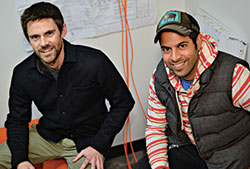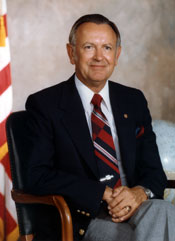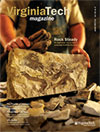 |
|
||||||
|
|
|||||||||||||||||||||||||||||||||||||||
|
Alumni carve out niche in legal industry
After graduating, Datta and Kaulback both worked for a technology company offering "e-discovery" products and services for the legal industry. E-discovery assists law professionals in building cases through computer forensics, discovery, and document review, digitizing what traditionally has been a manual process for lawyers. "The company we worked for was dealing with high-tech stuff, but we felt they were doing it in a low-tech way. We thought we could do it better and more efficiently," said Datta. Among the services Ignited Discovery offers is data hosting, providing clients a searchable online database of evidentiary documents related to specific cases. As 22-year-olds, the duo launched Ignited Discovery in a rented Fairfax, Va. office with $20,000 in combined personal savings, four computers, and two phone lines. In 2009, Ignited Discovery ranked No. 360 on the Inc. 500, an annual nationwide list of America's fastest-growing private companies. In Inc.'s ranking of the top companies in the Washington, D.C., area, the company ranked No. 34. In 2011, Ignited Discovery was on pace to achieve revenue of $10 million, an increase from $4.6 million in 2010. "Seeing this company go from two people to 10, then 15, to now, where we have a team of 30 and we're still looking to hire, it's a great accomplishment for us," said Datta. In 2011, Ignited's eighth year of operation, the company earned another mark of distinction, when it was acquired in July by Navigant. Even within a larger organization, not much will change: Datta and Kaulback will continue to serve as managing directors for a rapidly growing e-discovery team and related projects. "We've made sure that our original team stays intact. The only real difference is that we have more work," said Kaulback. The business partners credit their success to solid camaraderie and perseverance. "We're still very good friends, and for a lot of people it doesn't work out that way," said Kaulback. Rommelyn Conde (communication '07 is a graduate assistant for University Relations.
NASA mission control center named for alumnus by OLIVIA KASIK
A key player in the concept development and implementation of mission control centers during his career, Kraft felt that "[the center] was my life in stone. Whenever we were in space, it felt like a very normal thing to do. It was my home." Fittingly, in April 2011, the Christopher C. Kraft Jr. Mission Control Center at the Johnson Space Center was unveiled in recognition of Kraft's service and dedication to NASA. After graduating from Tech, Kraft worked for the National Advisory Committee for Aeronautics, NASA's predecessor. In 1958, he joined the newly created NASA as part of the Space Task Group, to which then-President Dwight D. Eisenhower assigned the mission of sending man into orbit following the Soviet Union's successful launch of Sputnik 1. Kraft would go on to serve as flight director during all of the Mercury missions and most of the Gemini program and later as the director of flight operations during the Apollo program. "I couldn't have been any happier. I wanted to go to work every day," said Kraft. Kraft was named the director of the Johnson Space Center in Houston in 1972. He retired in 1982, but continued to work as a consultant. In 2001, he published his autobiography, "Flight: My Life in Mission Control." "I wanted people to understand where I came from. ... I want people to know that [there] were a lot of people along the way that contributed to my education and encouraged me, from kindergarten to college," he said. Kraft admits that Virginia Tech contributed greatly to his career. "I was given a very sound, fundamental education in science and engineering that supported me greatly when I became a working engineer," Kraft said. "I think the people who were responsible for my education, the counseling I had, and the direct teaching I got, they all had a great influence on my future. I appreciated that a great deal and still do today." |
|||||||||||||||||||||||||||||||||||||||
|
|



